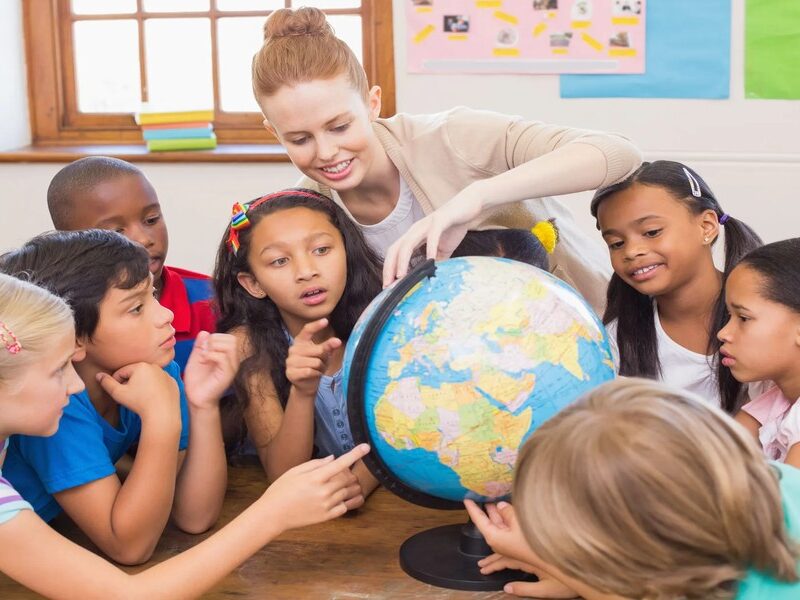In today’s fast-paced, screen-oriented world, outdoor play has become more important than ever for young learners. Spending time outside offers a wealth of benefits that support children’s physical, cognitive, and social development in ways that indoor activities simply cannot replicate. From building strength and coordination to fostering creativity and social skills, outdoor play is a fundamental aspect of early childhood development. Here’s a look at why outdoor play is essential for young learners and the many ways it supports their growth.
1. Physical Health and Fitness
One of the most obvious benefits of outdoor play is the physical activity it encourages. Running, jumping, climbing, and exploring the outdoors help young children develop their motor skills, balance, and coordination. Activities like these build strength and endurance, providing a natural way for children to stay active and fit.
Outdoor play also helps combat the rising issue of childhood obesity by encouraging children to move their bodies and burn energy. Spending time outdoors gives children an opportunity to release excess energy, which is beneficial for their physical health and can improve their ability to focus and concentrate in the classroom.
2. Mental Health and Well-being
Outdoor play has a profound impact on young children’s mental health. Being in nature and getting fresh air helps reduce stress, anxiety, and symptoms of hyperactivity. Studies have shown that spending time outdoors can elevate mood, boost mental clarity, and promote a sense of calmness and relaxation.
For young learners, the sensory stimulation of being outdoors—the sounds of birds, the feel of grass, the sight of trees—helps them engage with their surroundings in a grounding, comforting way. This connection with nature is not only beneficial for mental health but can also instill a lifelong appreciation for the environment.
3. Enhanced Cognitive Development
Outdoor play offers countless learning opportunities that stimulate young learners’ cognitive growth. When children explore their surroundings, they encounter new sights, sounds, textures, and experiences that challenge their thinking and problem-solving skills. For example, navigating a playground structure, observing insects, or playing with sand and water encourages curiosity and experimentation.
The outdoor environment often presents unique, open-ended challenges that require children to think critically, make decisions, and try new approaches. These experiences lay the foundation for cognitive skills such as spatial awareness, attention, and memory. Outdoor play also provides young learners with a chance to apply what they’ve learned in the classroom to real-world scenarios, reinforcing their understanding in meaningful ways.
4. Boosting Creativity and Imagination
The natural world is a boundless source of inspiration for young minds. Outdoor spaces offer children an open canvas for creative play, encouraging them to invent their own games, make-believe worlds, and stories. In contrast to structured indoor environments, outdoor play areas allow children to explore and experiment without limitations, letting their imaginations run free.
From building forts out of sticks and leaves to creating imaginary adventures in the woods, outdoor play helps children develop their creativity and imaginative thinking. These skills not only enhance their enjoyment of play but also contribute to their ability to think outside the box, adapt to new situations, and find creative solutions to challenges.
5. Developing Social Skills and Teamwork
Outdoor play offers young learners valuable opportunities to interact and collaborate with their peers. Playing games, sharing resources, and navigating play equipment together fosters essential social skills such as cooperation, communication, empathy, and conflict resolution. Children learn to negotiate, take turns, and support one another, which helps build friendships and social bonds.
In outdoor settings, children are often more willing to take on leadership roles, try out new ideas, or join group activities. This unstructured social environment allows them to practice social interactions in a natural, low-pressure way, helping them build confidence and develop positive relationships with their peers.
6. Increasing Resilience and Independence
The outdoor environment is unpredictable, often presenting young learners with new challenges that build resilience and independence. Climbing a tree, navigating uneven terrain, or figuring out how to cross a stream are small challenges that require children to assess risks, make decisions, and persevere.
Through these experiences, children learn that they can overcome obstacles, which boosts their confidence and teaches them resilience. Outdoor play encourages children to be resourceful, trust their instincts, and take appropriate risks—all essential life skills that will serve them well as they grow older.
7. Improving Focus and Attention Span
Outdoor play can improve young learners’ ability to focus and concentrate, both inside and outside the classroom. Studies have shown that exposure to natural environments helps children develop attention and self-regulation skills, which are important for academic success.
The freedom and stimulation of outdoor playtime allow children to release energy and explore their surroundings in an unstructured way. This break from structured indoor activities gives their minds a chance to reset, making them more attentive, calm, and ready to learn when they return to the classroom.
8. Developing Sensory Awareness
Outdoor environments are rich in sensory experiences that help young children build awareness of their surroundings. The textures, smells, sounds, and sights of nature stimulate children’s senses in ways that indoor settings often cannot. Whether it’s feeling the texture of tree bark, smelling flowers, hearing birds chirp, or observing insects, outdoor play helps young learners refine their sensory skills.
Engaging with nature through their senses not only contributes to physical and cognitive development but also enhances children’s observational skills and curiosity about the world around them.
9. Fostering Environmental Awareness and Appreciation
When young learners spend time outdoors, they develop a sense of connection with nature. This early exposure helps them build a sense of responsibility toward the environment and an appreciation for its beauty and diversity. Learning about plants, animals, weather, and ecosystems in a hands-on way can foster a lifelong respect for nature and encourage eco-friendly habits.
Outdoor play allows children to see firsthand how they are a part of a larger ecosystem, promoting environmental awareness that they carry with them into adulthood. Instilling this appreciation for nature at a young age can inspire children to take actions that support sustainability and conservation.
The importance of outdoor play for young learners cannot be overstated. It nurtures their physical, mental, and social development while offering unique opportunities for learning, creativity, and exploration. From enhancing cognitive abilities to building resilience, outdoor play provides young children with essential life skills that support their growth into confident, capable individuals. Encouraging young learners to spend time outdoors sets the stage for a healthy, balanced childhood and instills values that will serve them well throughout their lives. Embracing the outdoors is not just about play; it’s about giving children a foundation for lifelong learning, health, and happiness.
This post was written by a professional at Baby Fox Academy of Florida. Baby Fox Academy is your premier choice for high-quality early learning center Lakewood Ranch, FL, blending structured learning with the magic of play. Owned and operated by Laurie and Matt McCracken, Baby Fox Academy benefits from Laurie’s 25+ years of experience in early childhood education. Our play-based curriculum supports every child’s growth, balancing indoor and outdoor activities that build fine motor skills, creativity, language, and independence. With engaging tools like puzzles, dramatic play, and art, children develop essential skills while exploring their world. Parents can check in anytime via secure “Trail Cams” through WatchMeGrow, giving peace of mind while children learn, play, and grow. At Baby Fox Academy, your “baby fox” will thrive in a nurturing environment designed to inspire a lifelong love of learning.




